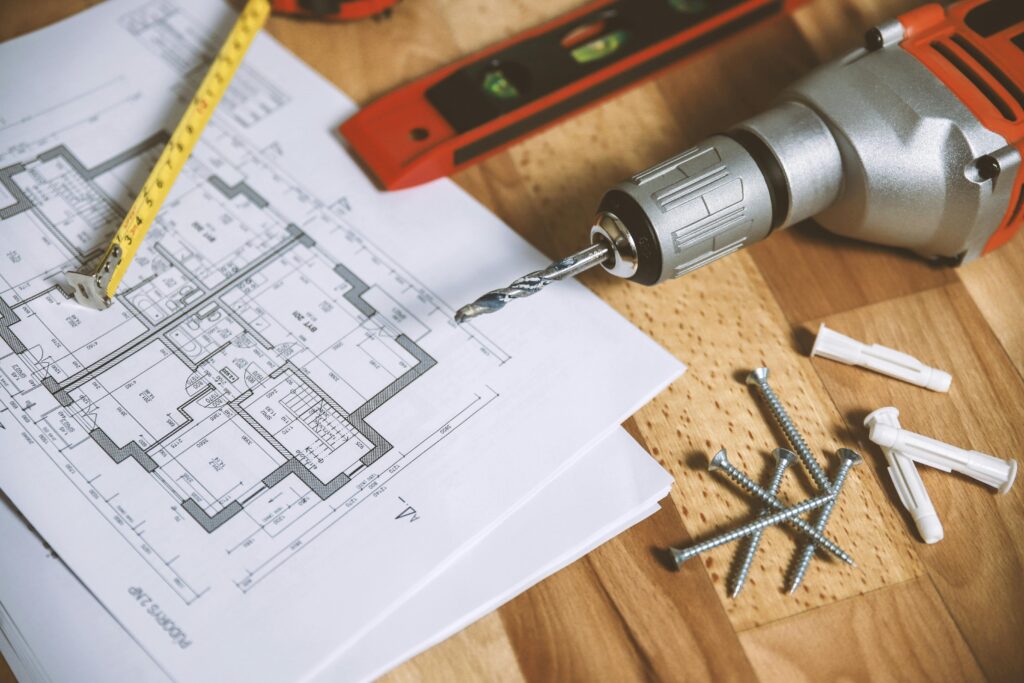
Program Overview
Program Duration: 2 Years (4 Semesters) Qualification Level: Diploma
The Diploma in Civil Engineering at Summit Heights Institute is a comprehensive and practical program designed to equip students with the essential knowledge and technical skills required for a successful career in the diverse and evolving civil engineering sector. This curriculum is meticulously crafted to be highly industry-relevant, focusing on current market demands and global trends such as sustainable infrastructure, smart cities, digital construction (BIM), resilient design, and advanced construction materials. Graduates will be prepared for various technical roles in design, construction, supervision, maintenance, and project management across infrastructure development, urban planning, environmental engineering, and structural engineering.
Key Program Pillars
- Core Civil Engineering Fundamentals: A strong foundation in structural mechanics, fluid mechanics, soil mechanics, and materials science.
- Sustainable Infrastructure: Emphasis on environmentally conscious design, resource efficiency, and resilient construction practices.
- Digital Construction & BIM: Proficiency in Building Information Modeling (BIM) and other digital tools for design, planning, and project management.
- Geotechnical & Water Resources: Understanding of soil behavior, foundation design, and water management systems.
- Transportation & Urban Planning: Knowledge of transportation infrastructure design and principles of sustainable urban development.
- Construction Management & Safety: Practical skills in project execution, site supervision, and adherence to safety standards.
- Problem-Solving & Project-Based Learning: Cultivating critical thinking through real-world case studies and hands-on projects.
Learning Outcomes
Upon successful completion of this Diploma, graduates will be able to:
- Apply fundamental principles of mathematics, physics, and engineering mechanics to analyze and solve civil engineering problems.
- Design and analyze basic structural elements, understanding material properties and structural behavior.
- Understand and apply principles of fluid mechanics and hydraulics in water resource and environmental systems.
- Analyze soil properties and design basic foundations for civil engineering structures.
- Interpret and create technical drawings, plans, and specifications, utilizing CAD and BIM software.
- Understand and apply principles of construction management, including planning, scheduling, and cost estimation.
- Identify and mitigate safety hazards on construction sites, adhering to relevant safety standards and regulations.
- Propose and evaluate sustainable and resilient design solutions for infrastructure projects.
- Utilize surveying techniques and equipment for site analysis and layout.
- Communicate technical information effectively, both verbally and in writing, and collaborate in multidisciplinary teams.
- Contribute to the planning, design, construction, and maintenance of civil engineering projects.
Curriculum Structure
Year 1: Foundational Principles & Design Tools
Semester 1
- CE101: Engineering Mathematics I
- Description: Covers essential mathematical concepts including algebra, trigonometry, functions, vectors, and an introduction to differential and integral calculus, with applications to civil engineering problems.
- Learning Outcomes: Solve engineering-related mathematical problems; apply basic calculus to simple civil engineering contexts; interpret and use technical formulas.
- CE102: Engineering Physics for Civil Applications
- Description: Explores fundamental physics principles relevant to civil engineering, including mechanics (forces, motion, energy, equilibrium), properties of materials, and an introduction to fluid properties and thermodynamics.
- Learning Outcomes: Explain basic physical phenomena; apply physics principles to civil engineering problems; understand the physical basis of structural and material behavior.
- CE103: Engineering Graphics & CAD for Civil Engineering
- Description: Develops skills in technical drawing, orthographic and isometric projections, sectional views, and dimensioning. Introduces 2D and 3D Computer-Aided Design (CAD) software for civil engineering plans and details.
- Learning Outcomes: Create professional civil engineering drawings; use CAD software for basic 2D and 3D modeling; interpret engineering blueprints and site plans.
- CE104: Introduction to Civil Engineering & Ethics
- Description: Provides an overview of the civil engineering discipline, its various branches (structural, geotechnical, water, transportation, environmental), historical context, and ethical responsibilities in infrastructure development.
- Learning Outcomes: Define civil engineering and its sub-disciplines; understand the societal role of civil engineers; recognize ethical considerations in civil engineering projects.
- CE105: Construction Materials & Testing
- Description: Covers the properties, behavior, and testing of common construction materials such as concrete, steel, timber, asphalt, and masonry. Includes laboratory practicals for material characterization.
- Learning Outcomes: Identify properties of common construction materials; perform standard material tests; select appropriate materials for specific applications.
Semester 2
- CE106: Statics & Strength of Materials
- Description: Introduces the principles of static equilibrium, force systems, moments, and friction. Covers concepts of stress, strain, elastic deformation, axial loading, torsion, and bending in simple structural elements.
- Learning Outcomes: Analyze forces in static systems; calculate stress and strain in basic structural components; determine deflections under simple loading conditions.
- CE107: Fluid Mechanics & Hydraulics
- Description: Covers the fundamental properties of fluids, fluid statics, manometry, and basic principles of fluid flow (continuity equation, Bernoulli’s equation). Introduces pipe flow, open channel flow, and hydraulic structures.
- Learning Outcomes: Analyze fluid static problems; apply continuity and Bernoulli’s equations; understand flow in pipes and open channels; describe basic hydraulic structures.
- CE108: Surveying & Geomatics
- Description: Introduces fundamental surveying principles, equipment (total station, GPS, levels), and techniques for land measurement, mapping, and site layout. Covers basic geomatics concepts.
- Learning Outcomes: Operate basic surveying equipment; perform land measurements; create topographic maps; understand coordinate systems.
- CE109: Introduction to Environmental Engineering
- Description: Provides an overview of environmental issues relevant to civil engineering, including water quality, wastewater treatment, solid waste management, air pollution, and environmental impact assessment fundamentals.
- Learning Outcomes: Identify major environmental challenges; understand basic water and wastewater treatment processes; explain solid waste management principles; recognize environmental regulations.
- CE110: Construction Safety & Health
- Description: Focuses on safety regulations, hazard identification, risk assessment, and accident prevention strategies specific to construction sites. Covers site safety plans, PPE, and emergency procedures.
- Learning Outcomes: Identify construction site hazards; apply safety procedures; understand construction safety regulations; develop basic site safety plans.
Year 2: Applied Design, Construction & Modern Trends
Semester 3
- CE201: Structural Analysis & Design (Concrete & Steel)
- Description: Builds on strength of materials, covering analysis of indeterminate structures and design principles for reinforced concrete and steel structural elements (beams, columns, slabs) according to relevant codes.
- Learning Outcomes: Analyze indeterminate structures; design basic reinforced concrete elements; design basic steel structural elements; apply relevant design codes.
- CE202: Geotechnical Engineering & Foundation Design
- Description: Covers soil properties, soil classification, compaction, shear strength, and consolidation. Introduces principles of shallow and deep foundation design, retaining structures, and slope stability.
- Learning Outcomes: Classify soils; analyze soil behavior; design basic shallow foundations; understand retaining wall principles.
- CE203: Transportation Engineering & Traffic Management
- Description: Focuses on the planning, design, and operation of transportation systems, including highways, railways, and airports. Covers traffic engineering principles, geometric design, and pavement design basics.
- Learning Outcomes: Understand transportation system components; perform basic traffic analysis; design simple road geometries; explain pavement types.
- CE204: Hydrology & Water Resource Engineering
- Description: Explores hydrological cycle components, rainfall-runoff analysis, flood routing, and design of hydraulic structures like dams, spillways, and culverts. Covers urban drainage systems.
- Learning Outcomes: Analyze hydrological data; design basic hydraulic structures; understand flood control measures; design urban drainage systems.
- CE205: Building Information Modeling (BIM) for Civil Engineering
- Description: Introduces the concepts and applications of BIM in civil engineering projects. Students will gain hands-on experience with BIM software for collaborative design, visualization, clash detection, and quantity take-off.
- Learning Outcomes: Understand BIM principles; use BIM software for civil design; perform clash detection; extract quantities from BIM models.
Semester 4
- CE206: Construction Project Management & Economics
- Description: Covers advanced construction project management topics, including project planning, scheduling (CPM, PERT), cost estimation, bidding, contract administration, and construction economics.
- Learning Outcomes: Develop comprehensive construction schedules; estimate project costs accurately; understand construction contracts; analyze project economics.
- CE207: Sustainable & Resilient Infrastructure Design
- Description: Focuses on designing infrastructure that is environmentally sustainable and resilient to climate change impacts and natural hazards. Covers green building principles, low-impact development, and climate adaptation strategies.
- Learning Outcomes: Apply sustainable design principles to infrastructure; design for climate resilience; understand green building certifications.
- CE208: Urban Planning & Smart City Concepts
- Description: Introduces principles of urban planning, land use zoning, and sustainable urban development. Explores smart city technologies and their application in civil infrastructure and urban services.
- Learning Outcomes: Understand urban planning concepts; explain smart city technologies; identify opportunities for technology in urban infrastructure.
- CE209: Advanced Construction Technologies & Materials
- Description: Explores innovative construction methods (e.g., prefabrication, modular construction), advanced materials (e.g., self-healing concrete, composites), and the application of automation and robotics in construction.
- Learning Outcomes: Describe advanced construction techniques; understand properties of innovative materials; recognize automation trends in construction.
- CE210: Civil Engineering Capstone Project
- Description: A culminating, comprehensive project where students apply integrated civil engineering knowledge and skills to a real-world design or analysis problem (e.g., design of a small bridge, a sustainable water system, a road segment, or a building foundation). This includes detailed design, analysis, cost estimation, and a professional report and presentation.
- Learning Outcomes: Execute a complex civil engineering design project; integrate multiple civil engineering disciplines; perform detailed analysis and design calculations; present technical findings professionally.
